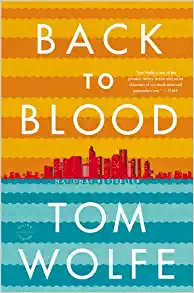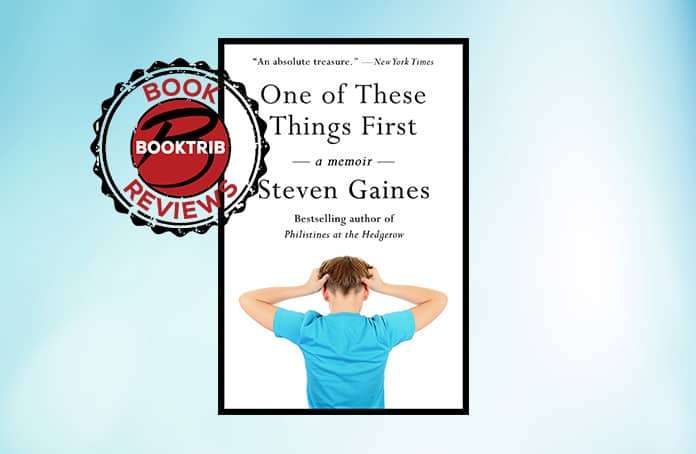Back to Blood by Tom Wolfe
Last week, I was in a book store when I overheard three young men in their late-twenties making fun of the photo of Tom Wolfe on the back cover of his book Back to Blood. Sacrilege. Alas, the photo was a little silly. It was typical showman Wolfe, dressed in his trademark white suit and tie, a snazzy hat in hand. He’s 84 years old now, and he looked a bit more like a geezer in a costume instead of his usual debonair self. But who cares what Tom Wolfe looks like as long as it’s another great book? “I didn’t know he was still writing,” one of the guys sniffed. “He’s too old.”
Too old? For what? So, in a Larry David moment I butted in and asked, “At what age should a writer stop writing?” They stared at me, amazed that I had interrupted. “Saul Bellow wrote until he was eighty-five,” I said. “James Michener was ninety or something, and he was working on a book until the day he died.” I could tell they weren’t particularly impressed with Michener or Bellow, so I added, “Elmore Leonard? Get Shorty? He’s eighty-seven. Why should anybody be too old to write?”
One of them said, “Philip Roth retired.” He had me there. Roth did indeed call it quits. Shocking, sort of. Roth has given service to the world of literature; his output was prodigious. He’s written 31 books, nearly one a year into his 70s, and won the Pulitzer prize for American Pastoral. He can certainly rest on his laurels. But he didn’t retire because he was too old—he was 80 and on his game. He retired because he was sick of the grind, and he was spent. He claims he already said what he wanted to say, and the month he retired he told a young writer who approached him for advice in a deli, “I would say just stop now. Really, it’s an awful field. Just torture. Don’t do this to yourself.”
Still, a lot of people in publishing don’t understand how he can just stop. A lot of writers I know want to die in the saddle. There’s a story about King George III saying to writer Edward Gibbon, after he published his masterpiece, the History of the Decline and Fall of the Roman Empire in 1776, “You writers scribble, scribble, scribble right to the end.” For the record, Gibbon’s end didn’t come until 20 years later, and he was still writing. Like other careers in the arts, the problem with being a writer is that there’s no expiration date, no exit strategy. What there is, however, is a certain built-in obsolescence. Your readers will tell you when to retire. I guess there’s no sense putting words down on paper if nobody will ever see them. But then again, retired opera singers don’t stop singing in the shower.
Steves Gaines is a bestselling author of numerous books and a BookTrib guest columnist. Amazon describes his latest book, One of These Things First as “a wry and poignant reminiscence of a 15 year old gay Jewish boy in Brooklyn in the early sixties.” Click on the image link below to read a preview of Gaines’ memoir and order his book on Kindle, in hardcover, paperback or audiobook.
Want to be a published writer? Enter our writing contest, where you could become a BookTrib Contributor! Deadline for submissions is January 31, 2018.
Buy this Book!
Amazon





